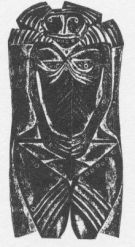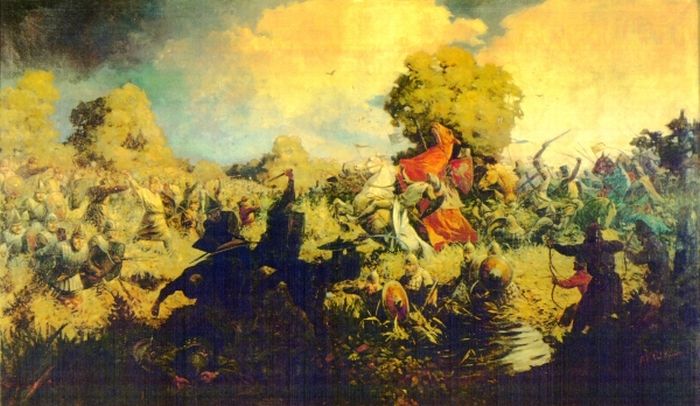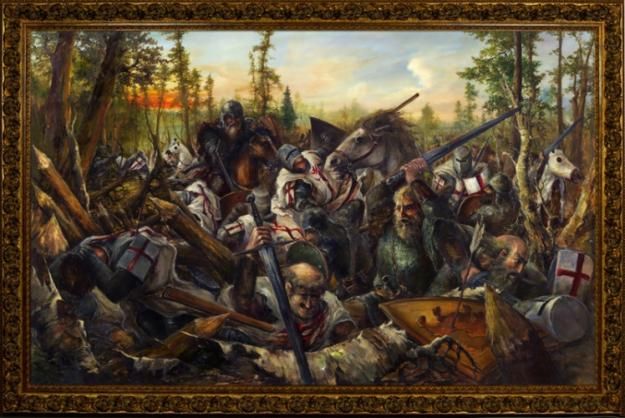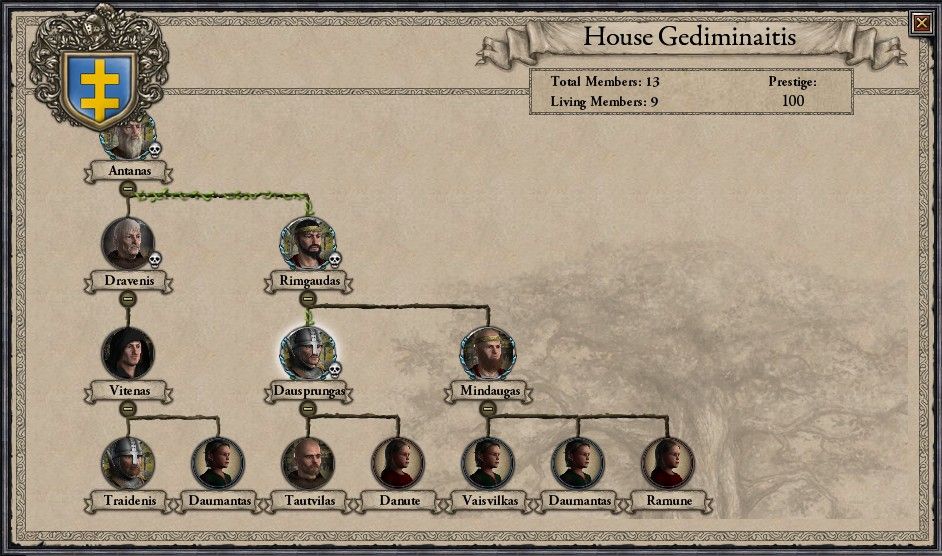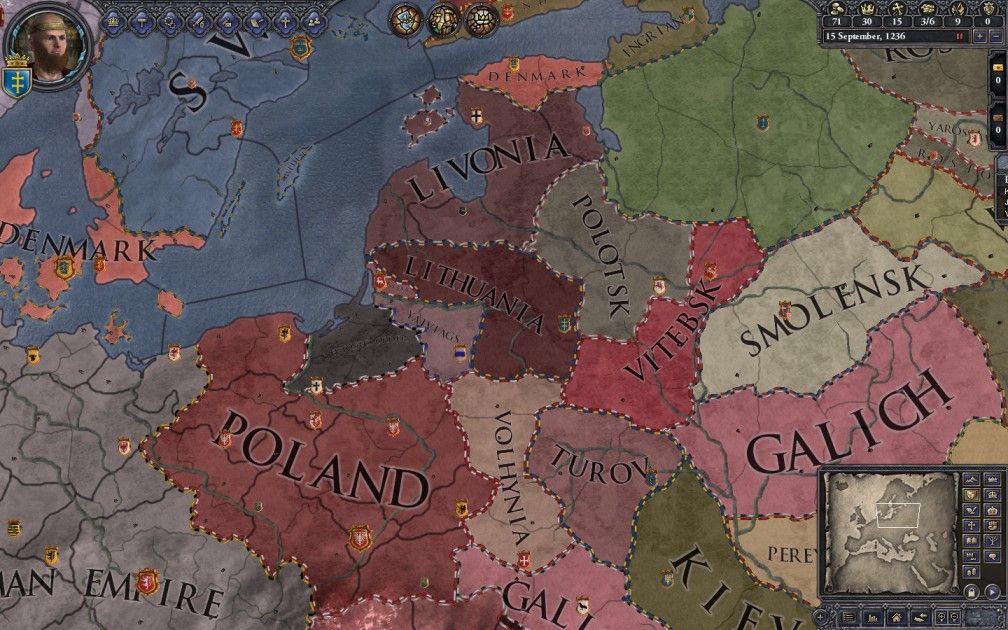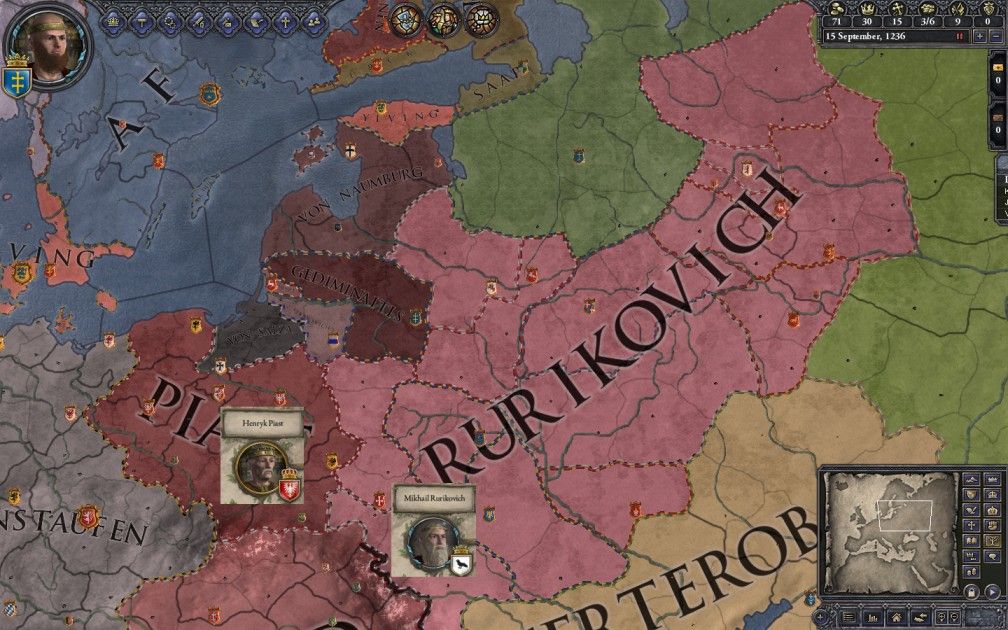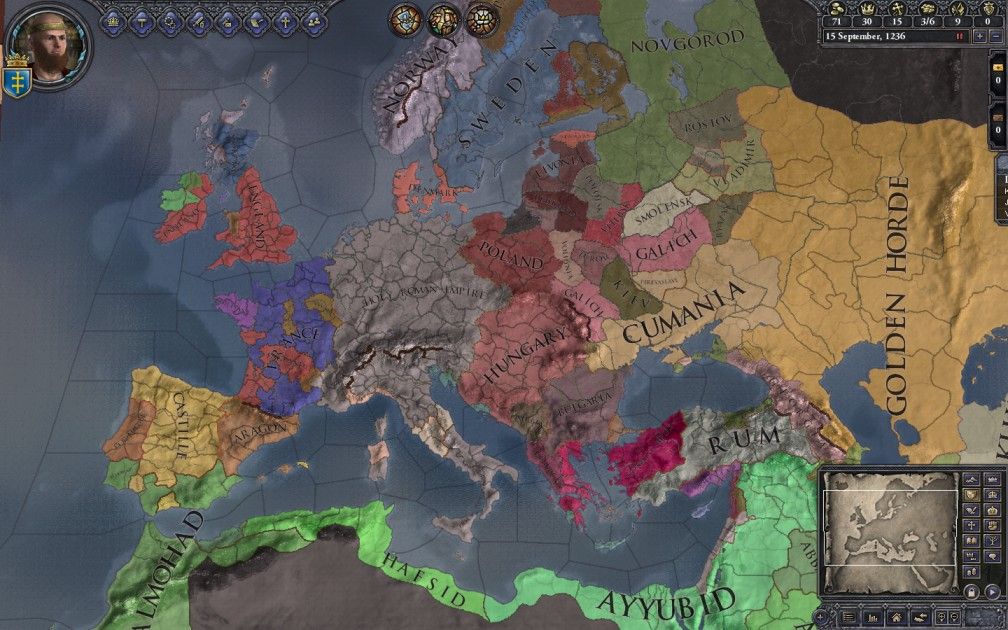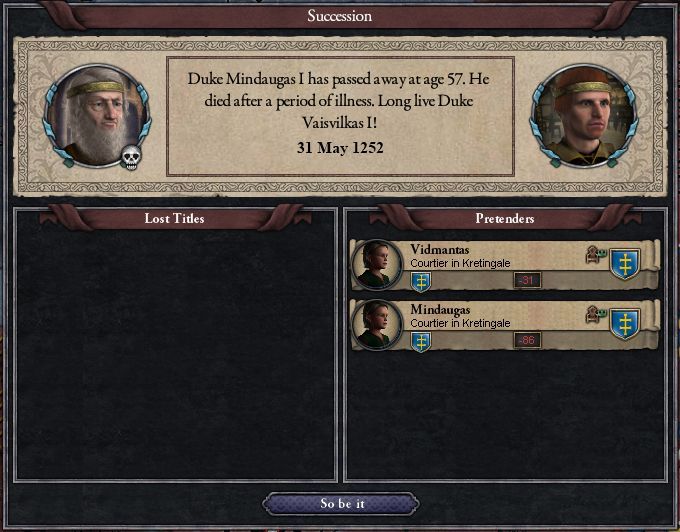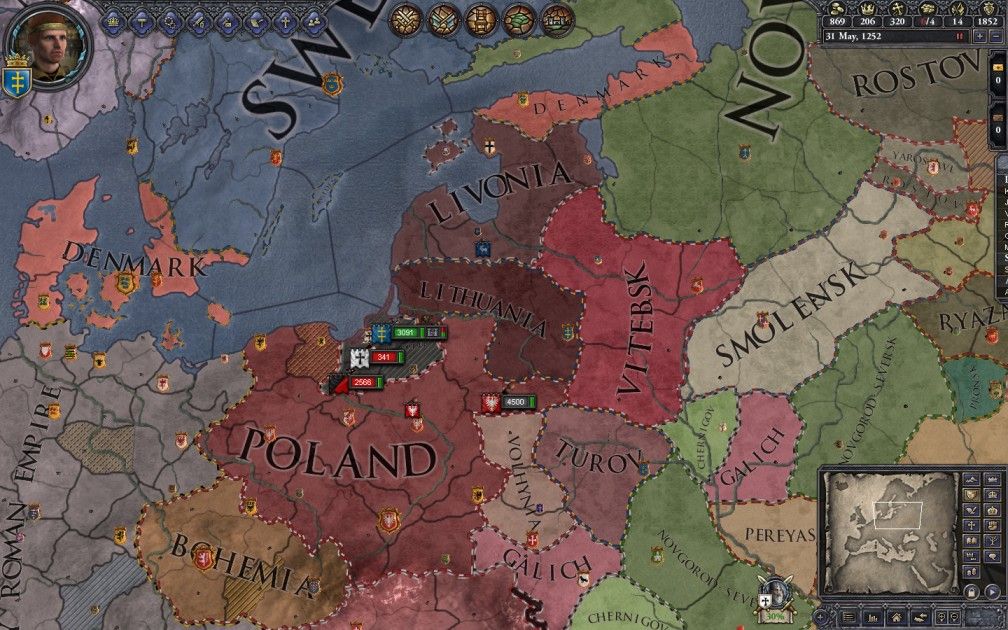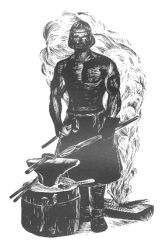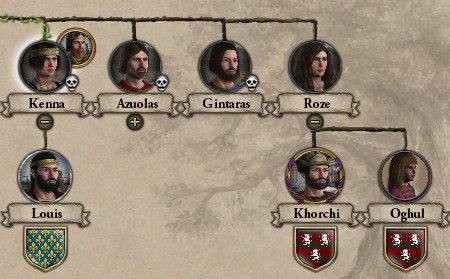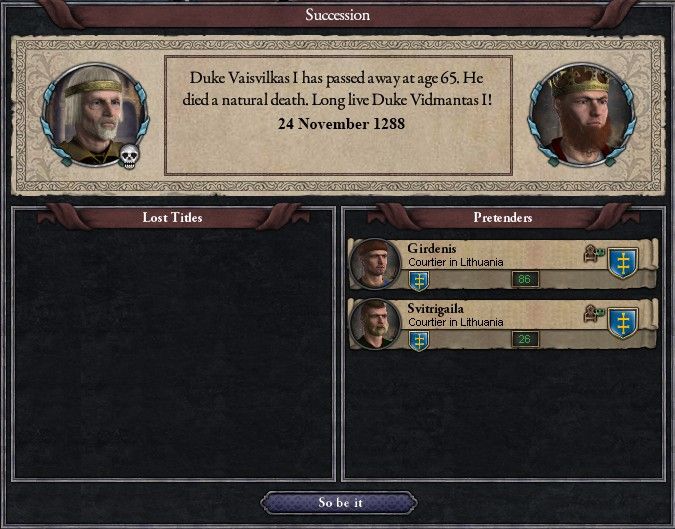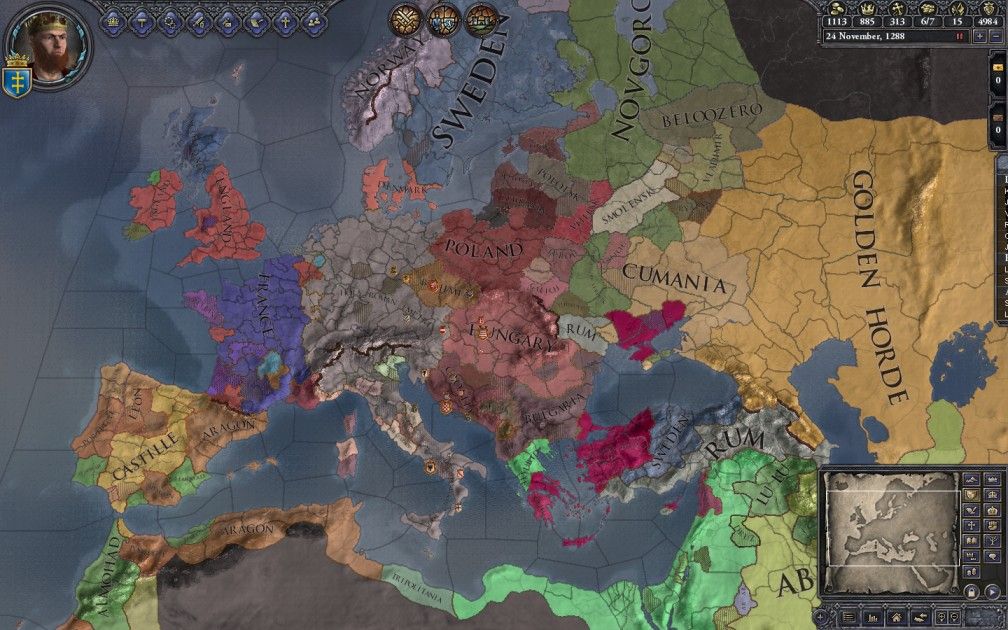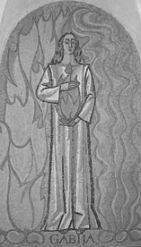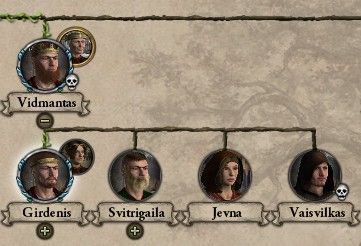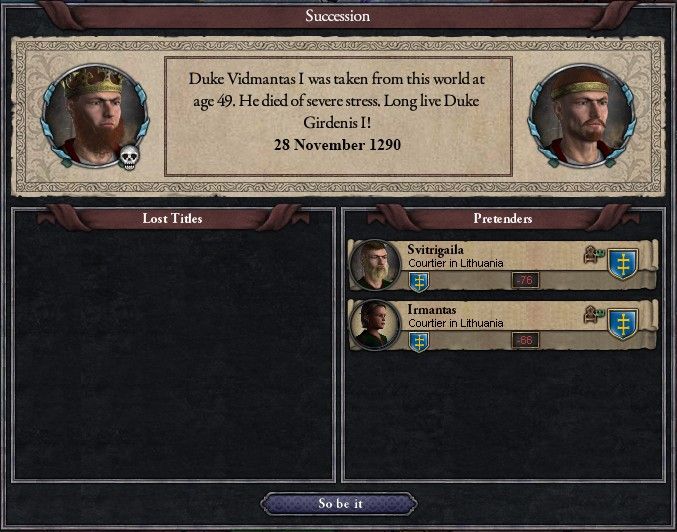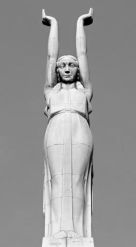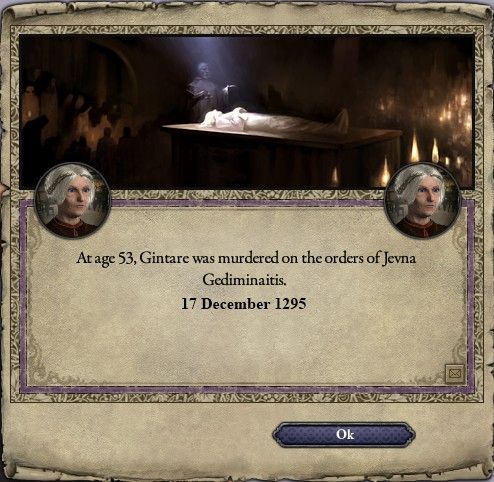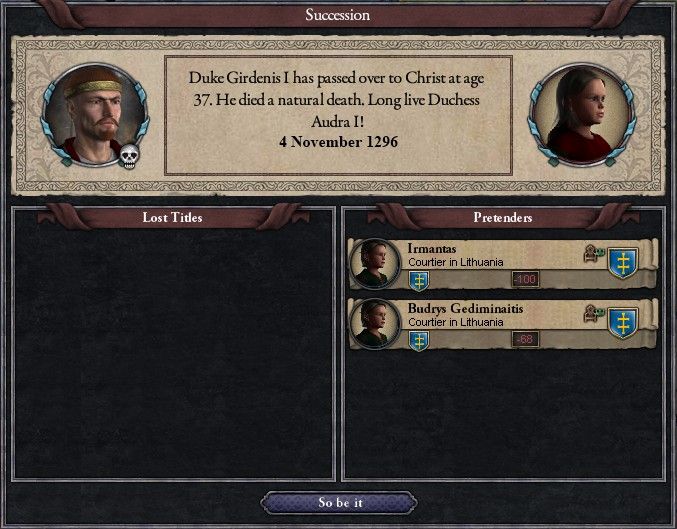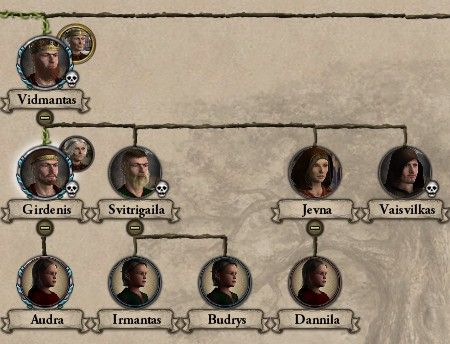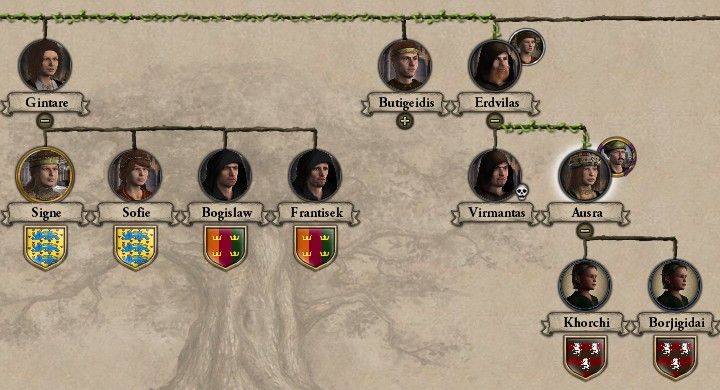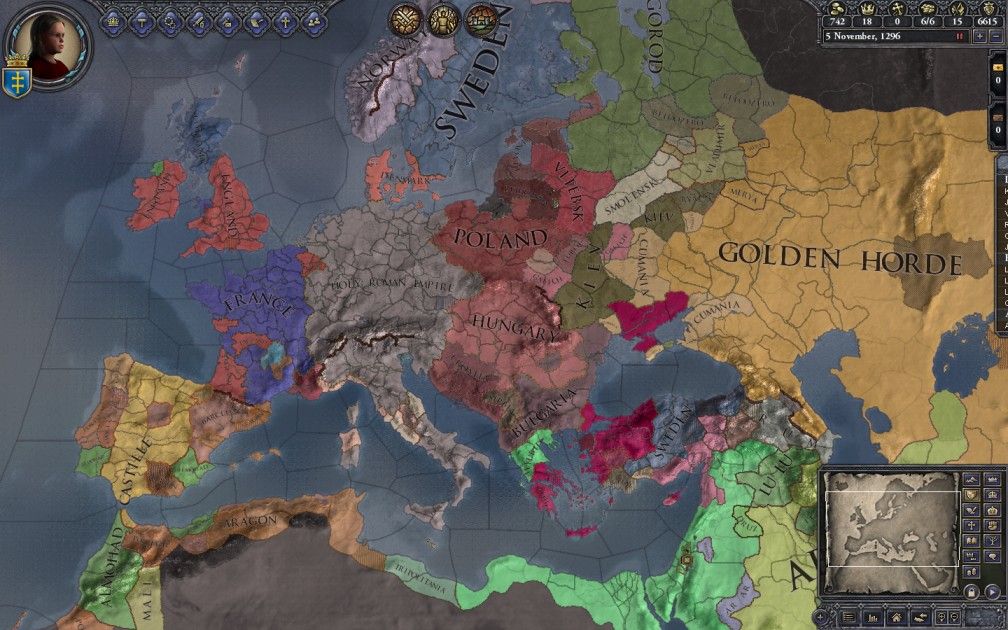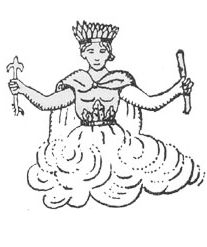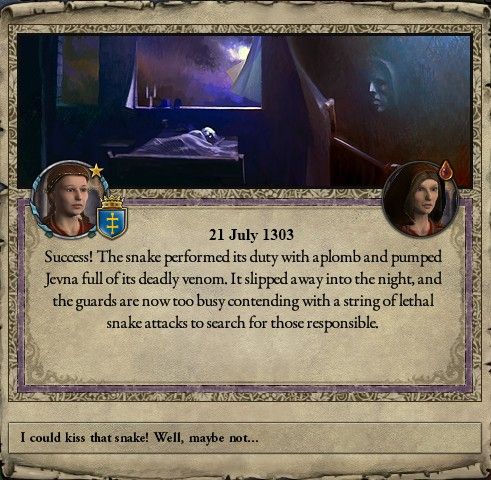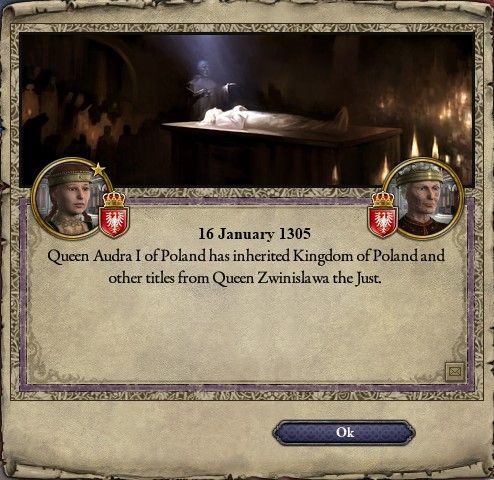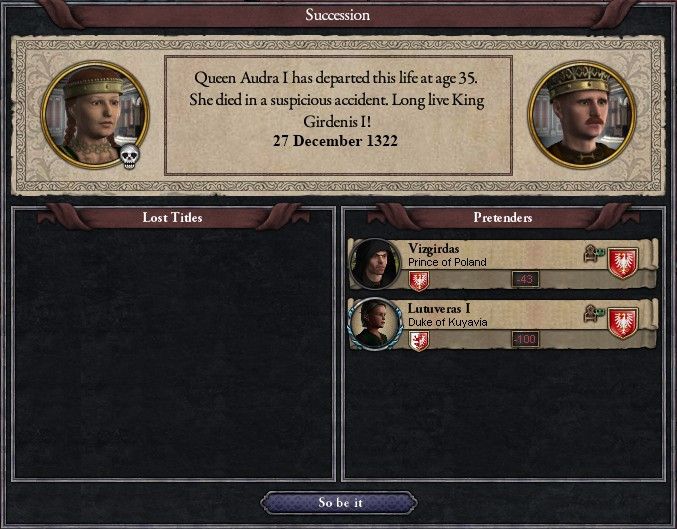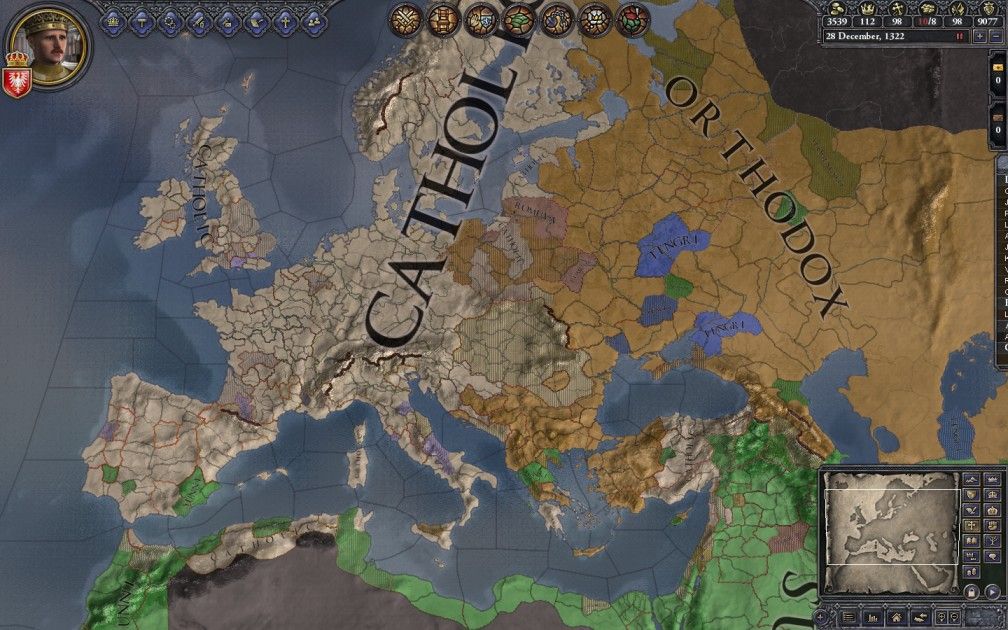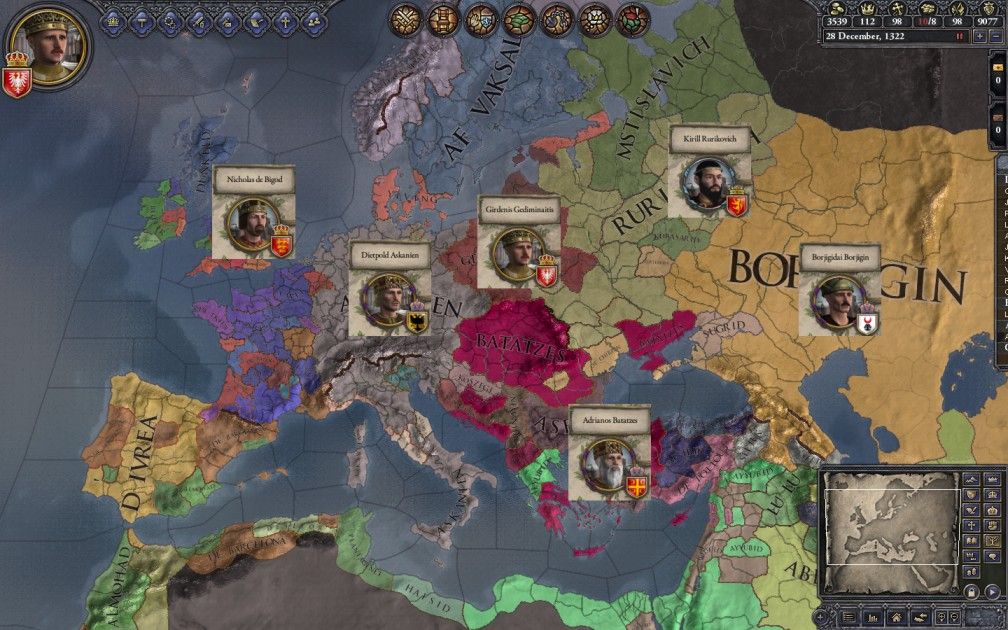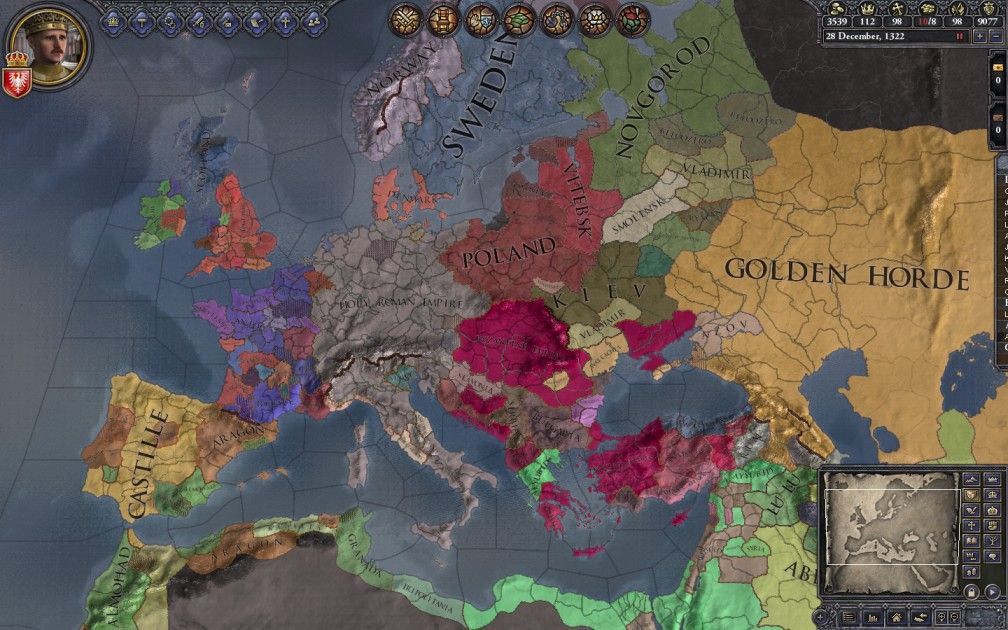The Return of Ancient Gods: Lithuanian Kingdom
Introduction
This is a short AAR about pagan Lithuanian Kingdom.
I use vanilla game 1.08 plus DLCs. As it is impossible to start the game as a pagan ruler I chose the year Duke Mindaugas became the ruler of Lithuania because he was an Orthodox Christian while Lithuania was still pagan.
In the beginning there was the primal chaos, nothingness, and chaos waters. In this nothingness two creators existed Dievas (God) and Velnias (Devil). Dievas begins to build a world from dirt which was brought by Velnias from the bottom of chaos waters and creates everything perfect – plains, fields, Velnias begins to spit swallowed dirt creating everything chaotic – mountains, rocks. Dievas creates birds – sky creatures and Velnias creates animals and beasts – land creatures. Following the creation of an island , Dievas decides to rest. While Dievas is asleep, one eyed Velnias tries to drown him by dragging him into water this way stretching the island they created and making it large. However, Dievas wakes up and punishes Velnias by sending him to the underworld – the Hell. Dievas later washes his face in heaven, a drop fells on the ground, and that’s how man is created |
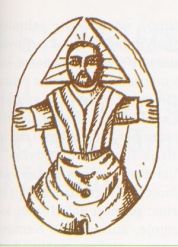
|
This is a short AAR about pagan Lithuanian Kingdom.
I use vanilla game 1.08 plus DLCs. As it is impossible to start the game as a pagan ruler I chose the year Duke Mindaugas became the ruler of Lithuania because he was an Orthodox Christian while Lithuania was still pagan.
Last edited:













